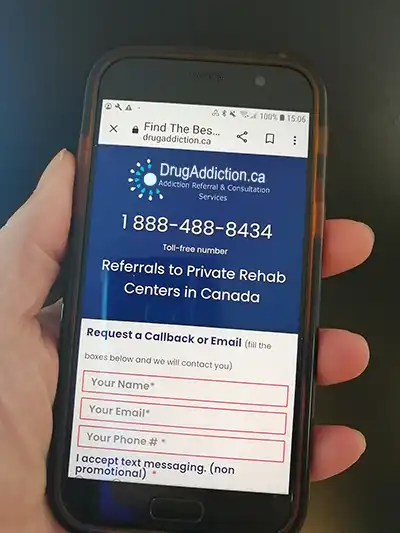Watching someone you care about struggle with alcohol can be heartbreaking and exhausting. Whether it’s a spouse, sibling, parent, or close friend, alcohol addiction often affects the whole family—not just the individual.
You may have already tried to talk to them, pointing out how their drinking is harmful or suggesting resources like Alcoholics Anonymous (AA).
Unfortunately, many people push back, deny the problem, or tell loved ones to “stay out of it.”
This reaction is common. Understanding why alcohol addiction is so difficult to address is the first step in knowing how to respond with compassion and persistence.

Why Helping Someone with Alcohol Struggles Is So Difficult
Alcohol use disorder (AUD) impacts both behaviour and physical health. Here are a few things to keep in mind.
Shame and Embarrassment
Many people with alcohol struggles feel deep shame about not being able to quit. This embarrassment often prevents them from admitting the problem or seeking help.
Denial and Minimizing the Problem
To avoid facing reality, individuals may brush off concerns, insisting that drinking isn’t a big deal. This denial makes it harder for families to intervene.
Belief They Are Only Hurting Themselves
A common mindset is that their drinking affects only them. In reality, alcohol addiction impacts family relationships, finances, and household stability.
Physical and Emotional Changes from Drinking
Long-term alcohol use alters both body and brain, leading to mood swings, irritability, sadness, or aggression—all of which complicate family support.
These attitudes and behaviours
make it difficult for families to intervene, often leaving loved ones frustrated and unsure of what to do next.
1 888-488-8434
Get immediate
help for addiction.
How Alcohol Addiction Affects Health and Relationships
Alcohol affects nearly every part of the body. Over time, excessive drinking damages organs such as the liver, heart, and pancreas. These physical problems rarely stay isolated—damage to one system often leads to a domino effect of health complications.
Alcohol Alters Emotions and Personality.
Some individuals become irritable or aggressive, while others feel depressed, anxious, or withdrawn. These shifts can strain family relationships and make communication even more difficult. Recognizing these changes helps families understand that alcohol addiction is not just a “bad habit”—it’s a condition that requires support and treatment.
Step-by-Step Guide to Supporting a Loved One with Alcohol Problems
Supporting a loved one through alcohol struggles requires patience, empathy, and the right resources. A progressive approach can make the process feel less overwhelming.
Educate Yourself and Your Loved One
Knowledge is the foundation of change. Many people with alcohol addiction don’t fully realize how drinking affects their health, relationships, and future. Share information gently and consistently, focusing on facts rather than judgment. Resistance is normal at first, but over time, education can spark curiosity and openness to change.
Encouraging Small Reductions in Drinking
For some, quitting immediately feels impossible. A realistic first step may be reducing alcohol intake. One approach is alternating alcoholic beverages with water or another non-alcoholic drink, often called “zebra stripe drinking.”
This strategy helps limit consumption and prepares the person for bigger changes down the road.
The Importance of Peer Support (AA and Other Groups)
Peer support groups, such as Alcoholics Anonymous (AA), can also play a vital role. These meetings connect individuals with others facing similar challenges, reducing feelings of isolation and offering encouragement to keep moving forward.


Exploring Detox and Inpatient Rehab Programs
The most effective path to long-term recovery is professional treatment. Many people begin with a supervised alcohol detox program, where medical staff help manage withdrawal symptoms safely. This is often followed by inpatient rehab, which provides therapy, structured care, and relapse prevention strategies.
Concerning Private Alcohol Rehab in Canada
If you’re considering private alcohol rehab in Canada, speaking with a referral counsellor is highly recommended. These professionals specialize in addiction services, helping families and individuals find the program that best fits their needs.
Consider a Professional Intervention
When a loved one refuses to accept help, a professional interventionist may be the best option. Interventionists are trained in addiction and family dynamics. They guide families in approaching their loved one with compassion and structure, increasing the chances of acceptance into treatment.
Private Alcohol Rehab Options for Families in Canada
Private alcohol rehab programs in Canada provide families with faster access to treatment and more personalized care compared to publicly funded options. However, with so many facilities available, it can feel overwhelming to determine which program is right for your loved one. Below are some of the main factors to consider when exploring private addiction treatment.
Program Lengths — 30, 60, and 90 Days
Most private rehabs in Canada offer flexible program durations. A 30-day program may provide a solid foundation for individuals who need a structured reset and introduction to recovery. 60-day programs give clients more time to dive deeper into therapy and build healthy coping mechanisms. For those with long-term or severe alcohol addiction, 90-day programs often offer the best outcomes, as they allow for comprehensive care and relapse prevention planning.
Detox and Rehab Combined vs. Rehab Only
Some facilities provide both medical alcohol detox and inpatient rehab in the same location. This can be beneficial, as clients transition directly from detox into ongoing therapy without disruption. Other centers may only offer rehab, meaning clients would need to complete detox elsewhere before admission. For individuals with heavy or prolonged alcohol use, a medically supervised detox is highly recommended to ensure safety during withdrawal.
Why Work with a Referral Counsellor
Because there are so many treatment options across Canada, families often feel uncertain about where to begin. This is where a referral counsellor becomes invaluable.
These professionals understand the landscape of private rehab centers and can recommend the most suitable program based on your loved one’s unique needs. Whether it’s program length, level of medical support, or specific therapies offered, a referral counsellor helps match individuals with the right facility and provides guidance throughout the process.
Take the Next Step Toward Recovery
Helping a loved one with alcohol addiction is not something you need to face alone. Whether you are just starting to notice the warning signs or your family member is ready for treatment, professional guidance can make all the difference.
Private alcohol rehab programs in Canada offer timely, personalized care that supports long-term recovery. If you’re unsure which option is best, a referral counsellor can help you navigate the choices and connect your loved one with the right detox or rehab program.
👉 Find funded alcohol rehab and detox options in your province or speak with a referral counsellor today. The sooner you take action, the sooner your loved one can begin their journey toward a healthier, sober life.


Carole Pelland
Substance Abuse
Digital Marketing Administrator
& Author
Reviewed by Susan Chubbs Drug and Alcohol Treatment Specialist


2 Responses
I have someone that I think is alcohol dependent. I wanted him to speak to someone but he refused. What else can I do?
Hi Indra, Thank you for your question. A referral counsellor will respond to you through email very shortly. Best of luck!
Carole